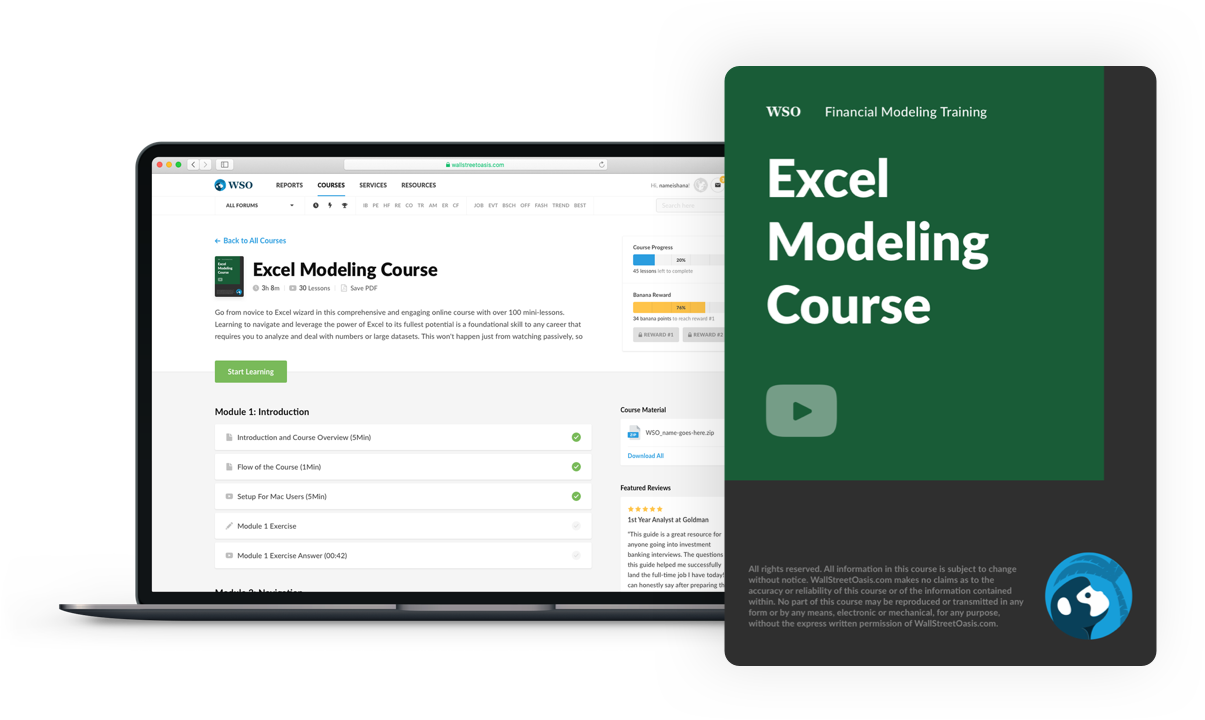
Managing Director (MD) Job Description
What is a Managing Director (MD) and what do they do?
In the context of Investment Banking, Managing Director (MD) is the title awarded to the highest-ranking role below the Group Head or C-Level Officer. An MD's job scope depends heavily on the title and department they are in charge of.

For example, the job scope of an MD in the investment banking division (IBD) would typically include finding potential clients, pitching to clients, getting deals for the firm and maintaining relationships with the clients on behalf of the firm. For an IBD MD, their ability to land clients and generate revenue for the firm will be rewarded in their bonus compensation. This is compared to the performance of an analyst, whose bonus compensation is based on the reviews of others working with them.
An MD in the sales and trading (S&T) division would manage the team of traders and their success would be measured by how the traders at their desk performed in the calendar year.
Given that MDs are usually internally promoted or laterally transferred from other firms of similar scale, and the fact that there is a rather rigid hierarchy in the banking industry, it is rare to see someone become an MD until the mid 30s. Even then, at such a young age, they would be the cream of the crop for the professionals that chose to be a career banker.
Outside of investment banking, an MD could be referring to the director appointed by the board of directors to be in charge of a company's, organization's, or corporate division's day-to-day operations. They may also be holding the title of CEO.
In multinational corporations (MNC), MD could be referring to the manager leading individual business divisions within a corporation or a region such as EMEA rather than the whole corporation. In the case of MNC, MDs are members of senior management and are responsible for keeping the corporation afloat and promoting industry expansion and innovation.
Career path to an MD (Investment Banking)
An MD at a banking firm is almost certainly a career banker. This means that they are likely to start from the analyst role or as an MBA associate in the firm. If they did not, they are likely to have lateralled in from other firms in the same industry.
There is no set career path for bankers to achieve the rank of MD as the track for the bankers usually slows down once the banker reaches the Vice President (VP) level with no fixed period before the promotion to the next role. Therefore, it can be said that the MD has proven their worth to the firm multiple times before they are duly promoted to the role of the MD.
Career Progression Pathway
Analyst path: Analyst (2 to 3 years) → Associate (3 to 4 years) → VP → Senior Vice President → Managing Director
*this is a typical career progression for an analyst but the title (especially senior titles) may vary across firms
MBA associate path: MBA → Associate (3 to 4 years) → VP → SVP → MD
*senior titles may vary across firms
Managing Director Salary (Investment Banking)
It is unclear what the exact range of an MD salary is, given their scarcity. This is exacerbated by the fact that MDs are likely paid based on several factors such as their performance, the revenue they bring to the company and the type of department they work for (Front or Back Office), etc...
This means that it is possible that an IBD MD at the New York City (NYC) office would be paid more than an IBD MD at the Singapore office because of the higher deal flow in NYC.
This also means that an MD in a front-office role like the equity capital markets division would likely earn more than an MD in a back-office role.
However, the base compensation of an MD at a Bulge Bracket (BB) should be around the region of mid-6-digit USD per year and the bonus could be as high as several millions of dollars depending on their performance and the performance of the firm.
For more information on the salary of MDs in investment banking, please have a look at this article.
To read more of a Q&A by an MD, you may consider browsing this post (https://www.wallstreetoasis.com/forums/qa-md-in-ma-and-capital-markets-with-bulge-bracket-and-boutique-experience#).
Availability of an MD (Investment Banking)
Even though there is an MD in every part of the bank, their availability to their junior staff and to other colleagues varies heavily depending on their personality, nature of their responsibility, and the department they work in.
For example, an MD in the S&T department would be more likely to be available to his traders as he would be sitting beside them during working hours compared to an MD in IBD as they may be on the road or in their own office.
Working hours of an MD (Investment Banking)
Given that the MD has managed to complete the rite of passage from the analyst role, they have considerable flexibility in their working hours in the office as long as they are able to complete the work required of them. Their working hours are also determined by the department they work in.
For example, for an IBD MD, their work mainly revolves around pitching ideas to potential clients and maintaining relations with them. This means that they spend a majority of their time outside the office, traveling to the client's location to pitch investment ideas to them using the pitch deck prepared by the analysts/associates or spending time playing golf with the clients at a famous country club like the Augusta National Golf Club.
Career progression after MD (Investment Banking)
Given that it is very lucrative to work as an MD, once they reach this stage of their career, they are likely to remain in this position until they wish to retire.
However, for a very small number of Managing Directors, they will eventually be groomed to be the head of the organization or have a leadership position of the firm should they wish to take up the challenge. They may also have other exit opportunities such as setting up their own buy-side firm, being in the leadership team of a listed company, etc.
The very lucky few, may even land a government job and influence the global economy based on their thinking. For example, the 77th Treasury of the United States, Steven Mnuchin, was once an MD in Goldman Sachs before becoming the General Partner and Chief Information Officer, subsequently leaving to work buy-side and eventually getting tapped by the 45th President of the United States, Donald J. Trump, for the Treasury Secretary role.

For more information on what it takes to be an MD in Investment Banking, please look at the following video.
Career path to an MD (MNC)
Similar to an MD at a banking firm, an MD at an MNC is almost certainly a career worker. They are likely to start from the bottom with the relevant degree or in the case of a blue-collar role, without a relevant degree. They would have been a hard worker and identified by management that they potentially possess leadership quality after which, they will be groomed over the years to a leadership role. Some, if not most of them, would then go on to complete further studies such as another bachelor's or master's degree during their career.
If they did not start from the bottom, they are likely to have come from other firms doing similar work or having obtained an MBA in between jobs.
Further, like in investment banking, there is no set career path for employees to achieve the rank of MD in an MNC as progression slows down after reaching middle management with no fixed period before another promotion. Therefore, it can be said that the MNC MD has also proven his/her worth to the firm multiple times.
Career Progression Pathway (MNC)
Non-management path: Non-Management role → Manager → Senior Manager → Director → Senior Director → MD
*senior titles may vary across firms
Management path: MBA → Manager/Senior Manager (depending on work experience before MBA) → Director → Senior Director → MD
*senior titles may vary across firms
Salary of MD (MNC)
The salary of an MD in MNC is broken down into 2 components just like that of an MD in IB, namely the base and variable pay. In MNCs however, the cash components are usually the base and the variables are usually stock options that generally vest over 4 years. Only a very small amount of the variable pay would be a cash bonus. This is contrary to the MD in IB, where a good component of their package would be cash and not share-based payments.

Further, the salary of an MD at an MNC is likely to be lower than that of an MD in IB despite generally requiring more time to attain the role. This is due to the inherently lucrative nature of IB rather than a sign of the actual skills and competency needed for the role of MD in an MNC. However, it is still a commendable 6 figures in salary and could be 7 figures and more if the company is doing well financially.
Career progression after MD (MNC)
Many MDs in MNCs would likely retire in this role as this tends to be the senior position in the industry. However, in some organizations, there tends to be space to grow and the MD can move to a much higher responsibility role. For example, an MD responsible for a small area can be moved to managing the entire company.
Some MDs may also head to other organizations for a role with similar responsibility if they find that it is unlikely for them to reach a senior management role in the current organization in the foreseeable future.
Some may also head to startups for a senior management role if they are willing to take up the challenge and see the potential in the startups as most startups lack experience in their senior management team. Having an MD who has a background working in big organizations could bring them much-needed experience and new perspectives that are needed for them to expand.

Everything You Need To Master Excel Modeling
To Help You Thrive in the Most Prestigious Jobs on Wall Street.
Free Resources
To continue learning and advancing your career, check out these additional helpful WSO resources:
.jpg?itok=DxumzaOP)

or Want to Sign up with your social account?